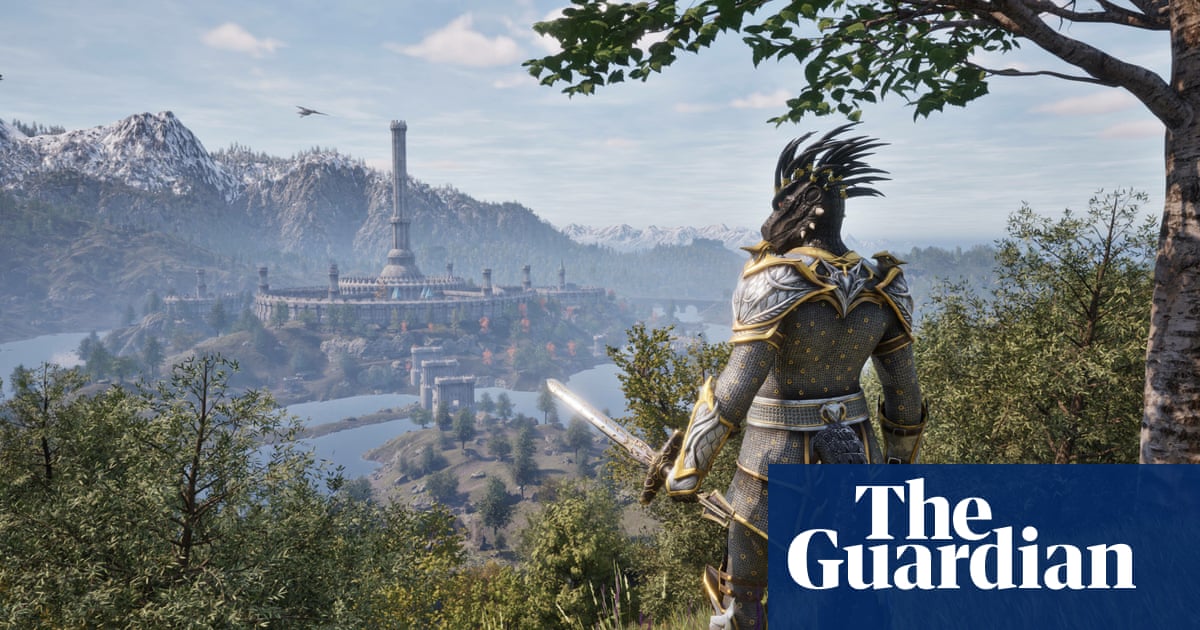DEFENSE SECRETARY HEGSETH: How’s it going everybody? Sir. Good to see you. It’s been a great day, really. Any day we can spend with the troops from the very early morning of PT with some high speed guys and gals to two COCOMs that are right in the front lines of advancing American interests. Proud to be here today.
Just an impressive display of what Americans are doing in far flung places for the American people, so proud to be here for sure. I think we have a local — where’s our local reporter? I’d like to go first to our local.
Q: Thank you so much. So —
DEFENSE SECRETARY HEGSETH: Where are you from?
Q: I’m from Suddeutsche Zeitung. That’s the second biggest newspaper in Germany.
DEFENSE SECRETARY HEGSETH: Well, it’s my favorite now.
Q: And you are visiting Africom as one of your first points in your duty. Does that mean that the American strategic aims in Africa are going to change?
DEFENSE SECRETARY HEGSETH: Well, I think it’s a reflection of the importance of that command as well as EUCOM. We spent this morning at EUCOM, as well; made sense to come to both if we’re here in Germany.
But it’s also a reflection that, you know, the PRC’s intentions are pernicious, not just in their part of the world, but also in South America and on the African continent. And America’s posture there along with allies and partners is going to matter about contesting that space. So, it certainly remains a priority.
You saw the strike in Somalia on February 1st. That — as we talked to the command, that’s a reflection also of pushing decision authority down, untying the hands of war fighters who in the previous administration made multiple requests and were often denied for that kind of kinetic action, or the decision had to be made at the White House when it should be made at the four star level or at the Secretary of Defense level more quickly based on the ability to degrade the enemy.
So, this is a very important part of the world for us. The President feels that way, as well, and we’re honored to be here. Thank you.
Q: Mr. Secretary, are you planning to cut the number of American forces in Europe, shift to the Pacific and focus on China?
DEFENSE SECRETARY HEGSETH: There are no plans right now in the making to cut anything.
There is an understanding that we’re going to review force posture across the world, right. President Trump’s planning assumptions are different in many ways, or at least strategic assumptions than Joe Biden’s were. We certainly don’t want to plan on the back of the withdrawal from Afghanistan and what happened on October 7th and the war that was unleashed in Ukraine.
You have to manage and mitigate those things by coming alongside your friends in Israel, ensuring their defense and peacefully resolving the conflict in Ukraine. But those shouldn’t define how we orient and with hopefully a rapid peace deal in Ukraine, which the President is committed to delivering, we can then review force posture and encourage as we’re going to — you’re going to see tomorrow in Ukraine and — or at the Ukraine Contact Group and the NATO ministerial, we’re going to have straight talk with our friends.
This kind of urgency of this moment requires friends talking to friends about capabilities, about leadership, about stepping up, about burden sharing and the incentives to say the European continent deserves to be free from any aggression.
But it ought be those in the neighborhood, investing the most in that collective — individual and collective defense. That’s common sense. As the President talks a lot about, common sense is you defend your neighborhood and the Americans will come alongside you in helping in that defense. If and when that happens, and I believe it will because of President Trump, most NATO countries are already close to 2 percent.
We believe that needs to be higher. The president has said 5 percent. I think he’s right. That’s a reflection of a need to invest on the continent. If and when that happens through investments in the defense industrial base, as well, then yes, America as the leader of the free world defending American interests is going to need to make sure we’re focused properly on the Communist Chinese and their ambitions in the Indo-Pacific, and as I mentioned before, around the world.
So, we would be remiss in not reviewing force posture everywhere, but it would be the wrong planning assumption to say, oh, America is abandoning something or America is leaving. No, America is smart to observe, plan, prioritize and project power where we need to deter conflict. We don’t want conflict with China.
We don’t want — the President has ran on being a peace president, and he’s delivered that. But being strong, peace through strength is how you deter that, and we want to posture for that just like we believe the Europeans alongside our support need to on the continent, as well.
Q: Is China the biggest threat to the United States?
DEFENSE SECRETARY HEGSETH: Well, right now, the biggest threat was securing our own border, which we are addressing rapidly. And I’m proud of what NORTHCOM has done and the Defense Department has done is shifting there. You don’t have a country if you don’t have borders, as the President has pointed out. And we’ve been defending other people’s borders for a long time; time to defend ours. So we’re sealing that border. We continue to do that. But as far as external threats, there’s just no doubt the communist Chinese ambitions are robust. Their view of the world is quite different than ours. And whoever carries that mantle is going to set the tone for the 21st century.
UNKNOWN: Christine —
Q: You made the point to do PT with tenth group this morning on very little sleep. Why was it so important for you to do this? And tell us about the workout?
DEFENSE SECRETARY HEGSETH: I did do PT with the troops this morning. Listen, it’s not that long ago that I was right there with them. I probably — no offense, General — I probably connect more with those guys than I do with four-star Generals. But now I get the chance of working with four stars and others who are committed to the troops.
But when I can get down, do push ups and deadlifts with the troops, and just hear from them, what’s working, what isn’t, how do you see your mission set, I love that. So there was never a doubt. even though we got in at 2:00 in the morning, that we were getting up a couple hours later to go do PT. It’s a reminder that — you guys — the press in Washington might think I’m young, but in military terms, I’m old.
And that showed this morning with these young guys who ran circles around me in that parking lot.
UNKNOWN: We’ll [Inaudible] then Zach.
DEFENSE SECRETARY HEGSETH: Go ahead.
Q: Thanks for doing this. Uh, you mentioned earlier that President Trump wants, uh, NATO countries to spend 5 percent of their GDP on defense. Do you think the US should also spend 5 percent of its GDP on defense?
DEFENSE SECRETARY HEGSETH: Well, I think the US needs to spend more than the Biden administration was willing to, who historically underinvested in the capabilities of our military. So the president is committed, as he was in the first term, to rebuilding America’s military by investing. And you’re going to see that in the conversations on Capitol Hill.
We’ve already been intimately involved with the folks on HASC and SASC and appropriations, talking about the capabilities we’re going to need, not just next year and the year after that or for the next four years, but for power projection going forward and then the reforms needed to make sure that every dollar goes further.
Now at a minimum, we should not go below 3 percent. That’s a view I know the President shares. But as far as going forward in that, those are decisions he will make based on my consultations with him. Listen, any defense secretary would be lying if they said they didn’t want more. You always want more.
But we live in fiscally constrained times where we need to be responsible with taxpayer dollars. We’re $37 trillion in debt. That’s a national security liability, as well. So, we’re going to work with Capitol Hill. The President is going to lead the way on making sure the troops have the resources they need and that we truly rebuild our military just like President Trump did in the first term.
Q: And President Biden — President Biden vowed against sending US troops into Ukraine. Would you be open to sending US troops into Ukraine to track weapons shipments?
DEFENSE SECRETARY HEGSETH: We are not sending US troops to Ukraine.
Q: You talked about wanting to welcome Elon Musk and DOGE into the Pentagon potentially in the next few weeks. Do you expect him to start unilaterally cutting programs and contracts the way he’s done at USAID and other agencies? And are there any limits or supervision you’d want to place on his team, given his conflicts of interest [Inaudible]?
DEFENSE SECRETARY HEGSETH: Well, we’ve been in touch with — I’ve been in touch with Elon Musk, who’s a great patriot, interested in advancing the America First agenda, knows that President Trump got 77 million votes and a mandate from the American people. And part of that is bringing actual businesslike efficiency to government; hence, what DOGE is doing.
Uh, we’ve been talking to them, in partnership with them. And as I said on social media, we welcome DOGE to the Pentagon, and I hope to welcome Elon to the Pentagon very soon and his team, working in collaboration with us. There are waste, redundancies and headcounts in headquarters that need to be addressed.
There’s just no doubt. Look at a lot of the climate programs that have been pursued at the Defense Department. The Defense Department is not in the business of climate change, solving the global thermostat. We’re in the business of deterring and winning wars. So, things like that we want to look for to find efficiencies and many others – the way we acquire weapons, system procurement.
There’s plenty of places where we want the keen eye of DOGE, but we’ll do it in coordination. We’re not going to do things that are to the detriment of American operational or tactical capabilities. There’s just — President Trump is committed to delivering the best possible military. The Defense Department is not USAID. USAID has got a lot of problems that I talked about with the troops, pursuing globalist agendas that don’t have a connection to America First.
That’s not the Defense Department, but we’re also not perfect, either. So where we can find billions of dollars — and he’s right to say billions — inside the Defense Department, every dollar we save there is a dollar that goes to warfighters, and that’s good for the American people.
Q: [Inaudible] Mr. Secretary, Since we’re here at AFRICOM, I have a question about Africa. Now when you served, you fought jihadists in the Middle East, and there’s a lot of jihadists in Africa, whether it’s ISIS, al-Qaida, al-Shabab, go on and on. How do you plan to handle that threat?
I’m not saying put troops on the ground in Africa to fight them, but are you concerned that there could be some sort of cell that might be plotting attacks against other parts of the world, trying to recruit soldiers because it’s Africa with a growing population? How concerned are you about the jihadist threat in Africa today?
DEFENSE SECRETARY HEGSETH: Definitely concerned. I mean, anybody of our — anybody of my generation that served in Iraq and Afghanistan or have been a part of post-9-11 understands the threat of global jihad, especially the desire to export that against our allies in Europe or Israel or certainly the United States of America. So the counterterrorism threat focused on those who would seek to do us harm is of the highest priority, which is why you saw what AFRICOM did so well in that strike in Somalia.
Where we see those growing, plotting or planning with increased capabilities we will strike. And that pertains to Islamist organizations all across the continent. But it also — we have to work with partners and allies. I mean, foreign internal defense and security force assistance — I was with Green Berets this morning.
You know, we think of Green Berets in the context of post-9-11, right – kicking down doors, and they’re really good at that. But what they’re best at is doing security force assistance and foreign internal defense where they work with local security forces to build up their capabilities so that it’s indigenous forces fighting Islamists because they want to secure their country, as well.
And AFRICOM is very directly committed to doing that. That’s a mission very much worth resourcing. I mean Africa is very much the front lines of a fight from Islamists. You’ve got Christian populations that are under siege in Africa and have been ignored for far too long and American interests there. It matters a great deal. And Islamists — we’re not going to allow them to maintain a foothold, especially to try to strike at America.
UNKNOWN: We’re going to finish up with two questions from these two [Inaudible].
DEFENSE SECRETARY HEGSETH: Ok. One more here and then here.
Q: John Barrowman, Stars and Stripes. Also related to AFRICOM and Somalia, during the end of President Trump’s first term, he elected to pull forces out of Somalia and switched to more of a rotational concept.
President Biden sent troops back in there on a full time basis. What’s your vision going forward for Somalia? Do you want to maintain troops there continuously, or are you looking more towards pulling them back?
DEFENSE SECRETARY HEGSETH: Well, I mean, I’m going to listen to the commanders on the ground, first and foremost, as is the President.
And he’s charged me with, hey, give me your best advice, but also keep your ear to the ground of what’s most effective. But he’s also been very clear that we’re not trying to have American boots all over the globe. Where we can do counterterrorism effectively over the horizon, that’s the preference. But we’ll review the force posture there and with the generals doing the heavy lifting and take it into consideration, no doubt.
But thankfully, we have the intelligence capabilities to do the kind of strike that we saw, and we believe we can do more of that.
UNKNOWN: Last question.
Q: So — so you renamed the name of Fort Liberty into Fort Bragg, and you honored the private first class who lost his life while liberating Germany. What does that mean for the US forces?
DEFENSE SECRETARY HEGSETH: Well, first, it means Bragg is back. It means the legacy of an institution that generations of Americans have mobilized through and served at is back.
I mean, it’s a shame what was done to vets, service members, their families who were born there, deployed out of there, lived there, gave there — I was with airborne troops here, some of which spent 25 years at Fort Bragg and never called it Fort Liberty because it wasn’t Fort Liberty, it’s Fort Bragg.
And so I was honored to be able to put my signature on that. By the way, with the support of the President of the United States who set the tone on this and said, I want Fort Bragg back.
And we’re honored to support a private first class who received a Purple Heart and the Silver Star at the battle of the bulge. We’re honoring a private first class and I’m proud that we have a Marine corporal as the vice president of the United States too. Junior enlisted have never seen better days. But it’s about that legacy.
It’s about the connection to the community, to those who served. And we’re not, as the President has said and I’ve said as well, we’re not done there. There are other bases that have been renamed that erodes that very same legacy. There’s a reason I said Bragg and Benning when I walked into the Pentagon on day one.
But it’s not just Bragg and Benning. There are a lot of other service members that have connections and we’re going to do our best to restore it. It’s an honor to do so. Thank you all for your time. Appreciate it. Thank you. Thank you. Thank you. Thank you.









